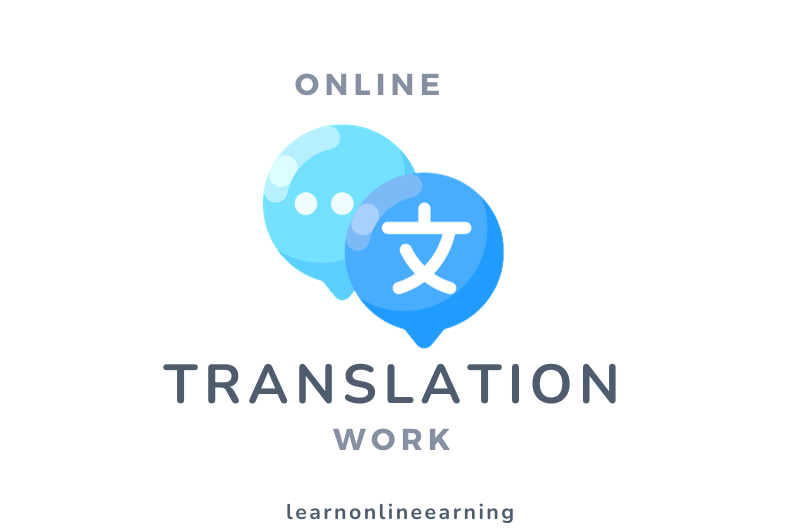Table of Contents
The world of online translation work offers a vast array of opportunities for those fluent in multiple languages and passionate about bridging linguistic gaps. Working as an online translator as a freelancer or businessman can be rewarding both professionally and personally. However, to thrive in this competitive field, it’s crucial to understand the nuances and strategies that will set you apart.
1. Introduction to Online Translation Work
Online translation work involves translating written or spoken content from one language to another. This field has seen a significant surge due to globalization and the digital age, creating a high demand for skilled translators.
2. Assessing Your Language Skills and Specialization
Evaluate your language proficiency and identify your areas of expertise. Specialization can significantly enhance your credibility and earning potential in online translation work.
3. Choosing the Right Online Translation Platforms
Select reputable online platforms that align with your specialization and goals. Platforms like Upwork, Fiverr, or specialized translation websites can be great places to start.
4. Building a Standout Translator Profile
Craft an impressive profile showcasing your skills, experiences, and portfolio. Highlight your proficiency, certifications, and past projects to attract potential clients.
5. Tips for Efficient Translation Work
Employ efficient practices such as glossaries, translation memory tools, and effective communication with clients to enhance your productivity and quality of work.
6. Managing Workload and Deadlines
Learn to manage your workload effectively by setting realistic goals, prioritizing tasks, and meeting deadlines consistently to maintain a positive reputation.
7. Developing a Strong Online Presence
Utilize social media, blogging, and participating in industry forums to create a robust online presence. Networking can open doors to new opportunities and collaborations.
8. Networking and Collaboration in the Translation Industry
Connect with other translators and professionals to foster collaborations, gain insights, and broaden your network. Networking can lead to referrals and shared knowledge.
9. Overcoming Common Challenges in Online Translation Work
Address challenges like cultural nuances, language intricacies, and managing client expectations. Adaptability and problem-solving skills are key in this dynamic field.
10. Improving Your Skills and Staying Updated
Invest in continuous learning and development to keep your skills updated. Attend workshops, webinars, and courses related to languages and translation.

11. Maintaining Work-Life Balance in Online Translation Work
Balance your professional and personal life by setting boundaries, scheduling breaks, and prioritizing self-care. A healthy work-life balance is essential for long term sucess and well-being.
12. Earning Potential and Growth Opportunities
Explore various pricing models and strategies to maximize your earnings. As you gain experience, consider expanding your services or teaming up with other professionals.
13. Testimonials and Success Stories
Share success stories and testimonials from satisfied clients to establish trust and credibility. Positive feedback can attract more clients to your services.
14. Dedication and Planning
A career in online translation work requires dedication, strategic planning, and continuous growth. By honing your skills, leveraging online platforms, and maintaining professionalism, you can build a successful and fulfilling career in the translation industry.
15. Embrace Lifelong Learning and Adaptability
Never stop learning and adapting to the evolving world of languages and technology. Stay curious, explore new tools, and embrace the ever-changing landscape of languages and translations.
16. Seek Feedback and Constructive Criticism
Welcome feedback from clients and peers, as it provides valuable insights for improvement. Constructive criticism helps you refine your skills and enhance the quality of your work.
17. Explore Diverse Translation Projects
Diversify your translation projects to broaden your skill set. Translate various types of content such as legal, medical, technical, or creative works to enhance your expertise.
18. Build Client Relationships and Retention Strategies
Focus on building strong relationships with clients through excellent communication, reliability, and delivering top-notch work. Satisfied clients often lead to repeat business and referrals.
19. Join Professional Associations and Groups
Become a member of translation organizations and online communities to stay connected with industry trends, access valuable resources, and collaborate with fellow translators can help in building your successful translation business.
20. Showcase Your Cultural Understanding
Understanding the cultural nuances of the languages you work with is crucial. Showcase this understanding in your translations to deliver more accurate and effective results.
Conclusion
Embarking on a career in online translation work is an exciting journey that offers immense opportunities for personal and professional growth. By following the outlined steps, continuously improving your skills, and adapting to the demands of the industry, you can achieve success in the world of online translation. Remember, success in online translation work is not just about proficiency in languages; it’s about delivering messages accurately, preserving context, and bridging gaps between cultures.
FAQs (Frequently Asked Questions)
Q. Is online translation work a viable career option?
A. Absolutely! With the increasing global connectivity, the demand for online translation services is on the rise. It offers a flexible and rewarding career for individuals proficient in multiple languages.
Q. How can I specialize in a particular field of translation?
To specialize, identify your interests and choose a field you are passionate about. Take specialized courses, gain relevant experience, and build a strong portfolio in that particular domain.
Q. Are certifications necessary for a career in online translation work?
While not mandatory, certifications can enhance your credibility and marketability. Consider obtaining certifications from recognized translation associations to showcase your skills.
Q. How do I determine my pricing for translation services?
Calculate your pricing based on factors like word count, complexity, deadlines, and industry standards. Research prevailing rates and tailor you’re pricing to reflect your skills and experience.
Q. How can I ensure work-life balance in a freelance translation career?
Set clear boundaries between work and personal life, establish a routine, and avoid overcommitting. Learn to say no when necessary and prioritize self-care to maintain a healthy balance.






